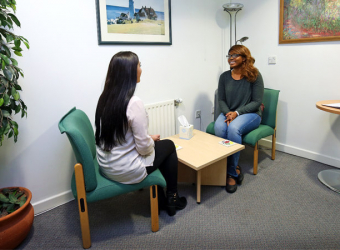What is Sjögren’s syndrome?
Sjögren’s syndrome (SS) is an autoimmune disease, in which the immune system attacks the salivary and tear glands, leading to dryness of the mouth and eyes.
What causes Sjögren’s syndrome?
Sjögren’s syndrome can occur as a primary disorder (primary Sjögren’s syndrome) or secondary to another connective tissue disorder such as rheumatoid arthritis.
It usually starts in people aged 40 to 60 and is much more common in women than men.
It’s a long-term condition that can affect your daily life, but there are treatments to help relieve the symptoms.
It is not clear why the immune system stops working correctly. Some people may be born with genes that increase the likelihood of developing an autoimmune condition. Hormones such as oestrogen might go some way towards why the condition is more common in women than men.
What are the symptoms of Sjögren’s syndrome?
The two main symptoms of Sjögren’s syndrome are dry mouth and dry eyes.
Signs that your mouth is dry include needing to drink water when you eat, your tongue sticking to the roof of your mouth, hoarse voice and problems problems such as tooth decay, gum disease and mouth ulcers.
Signs that your eyes are dry includes burning or itching eyes, swollen and red eyelids, dislike of bright lights and blurred vision.
Other signs of Sjögren’s syndrome include severe tiredness and exhaustion, rashes, dry cough, joint pain, muscle pain and difficulty concentrating or remembering.


















